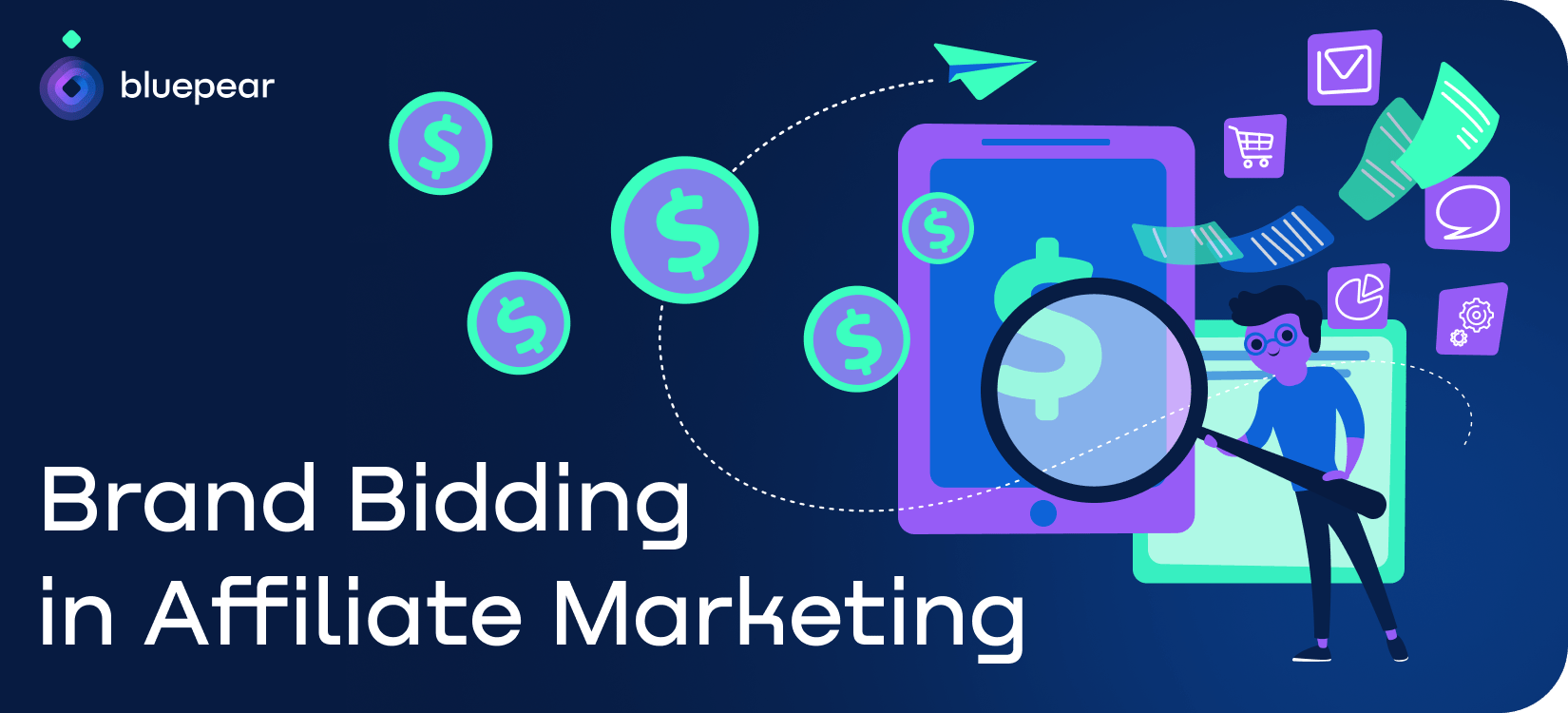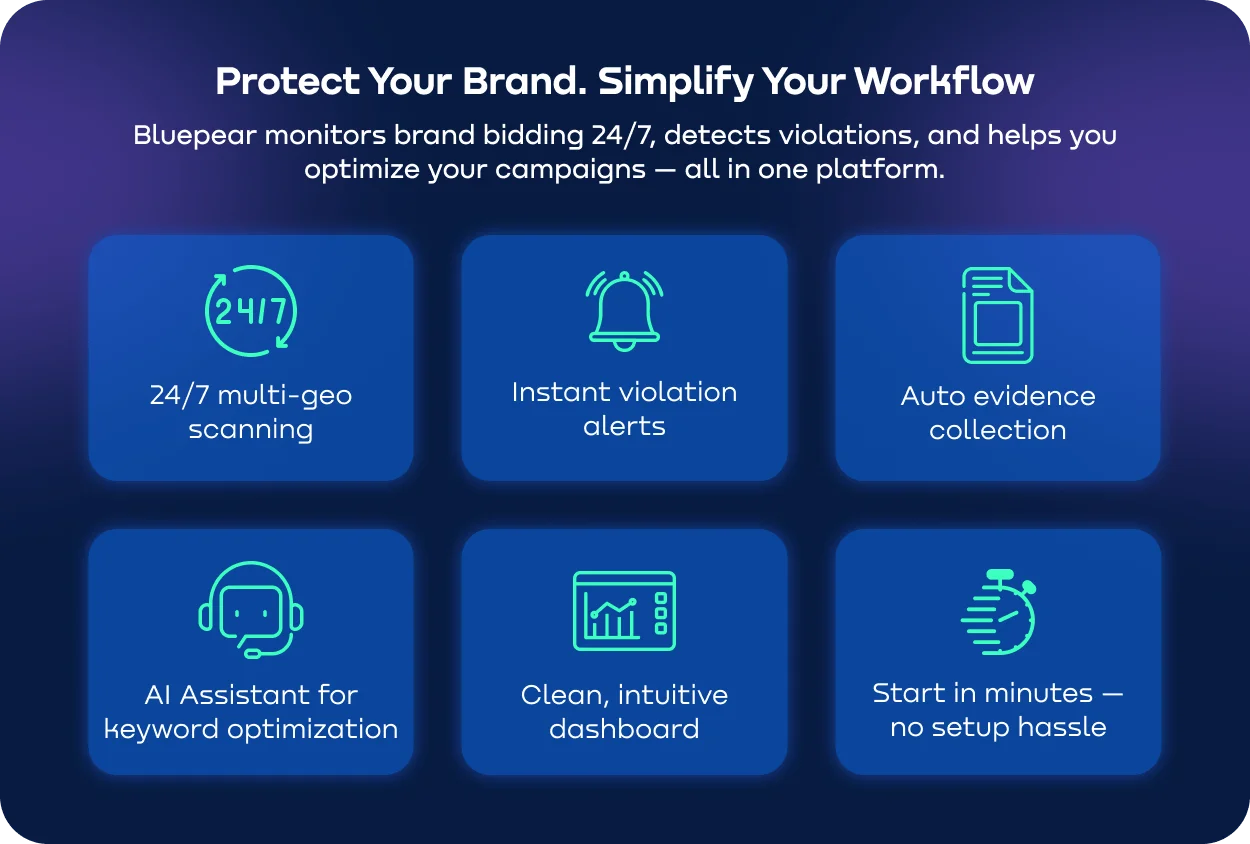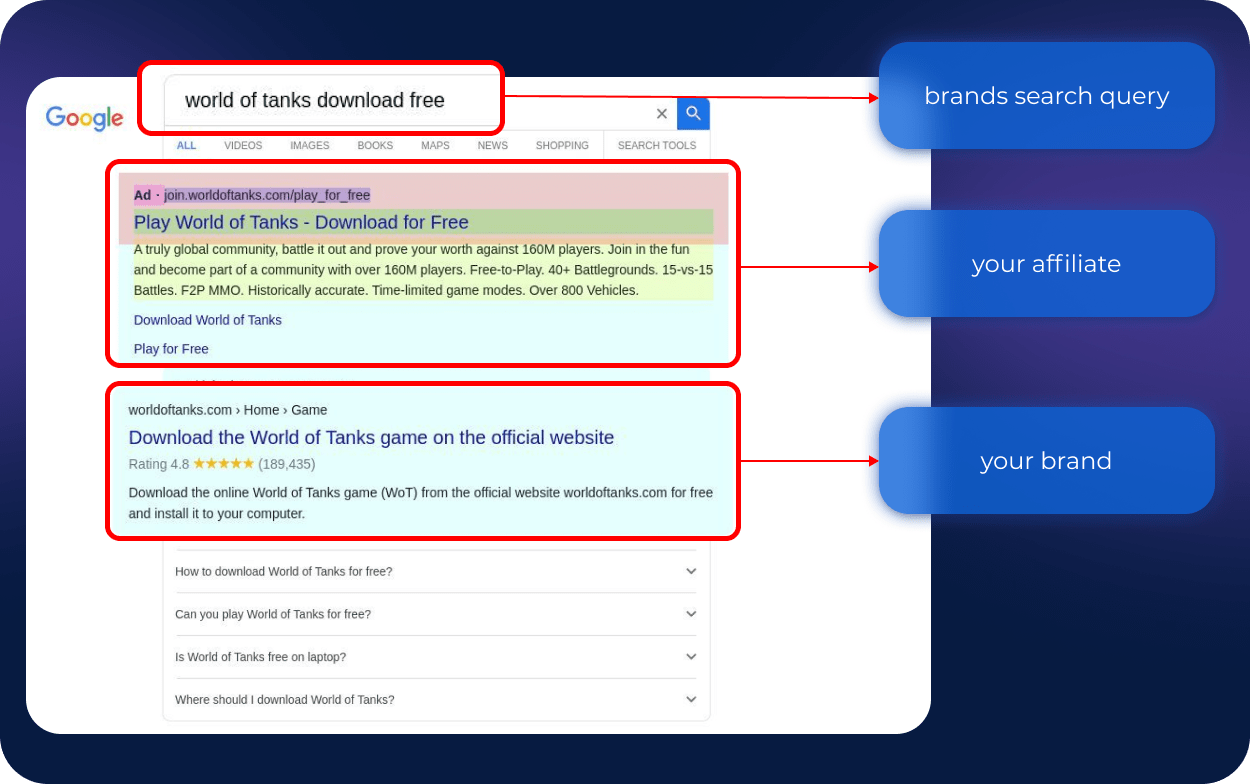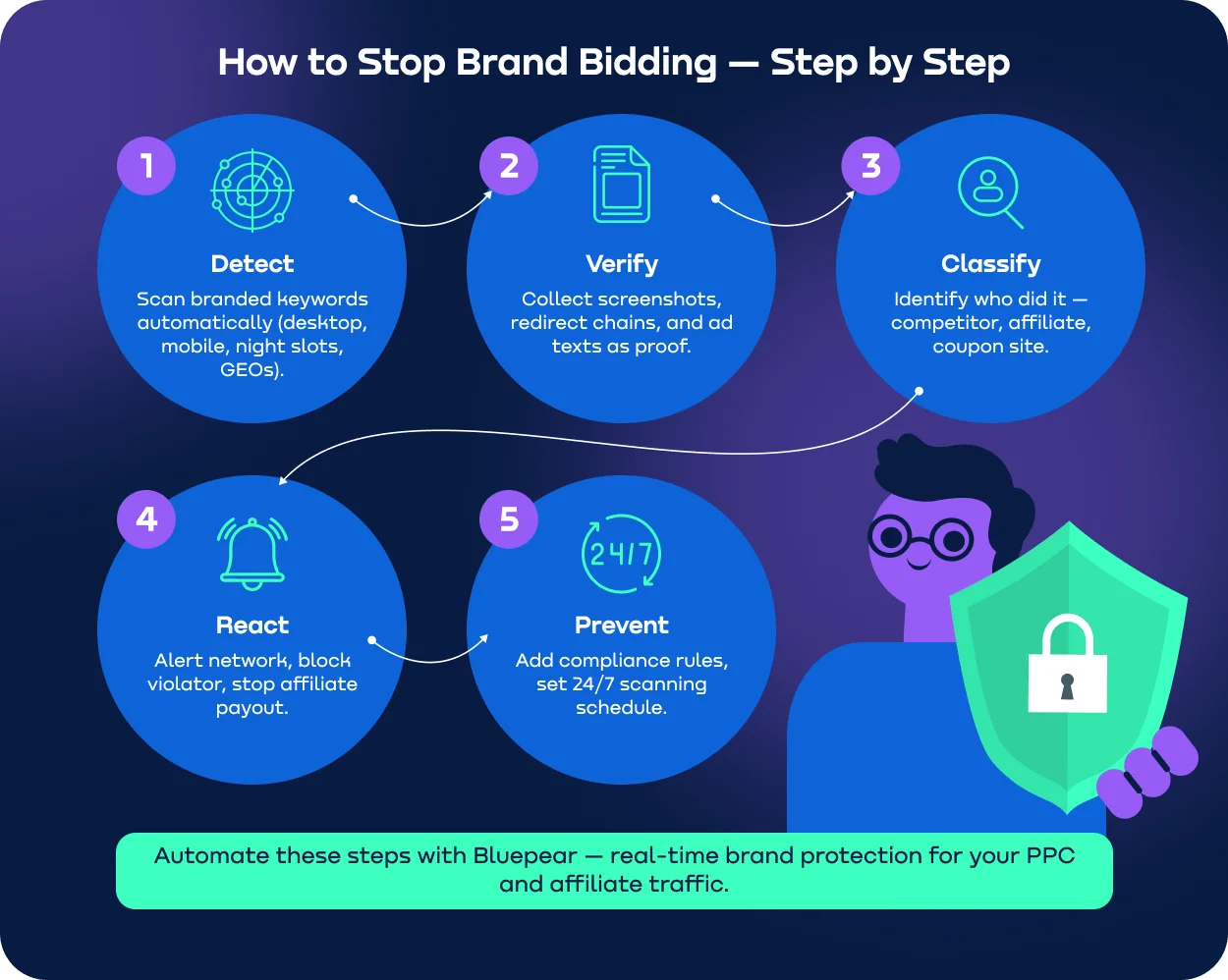Brand Bidding in Affiliate Marketing
10.06.2024
Contents
What is brand bidding?
Let one begin by identifying the meaning of the term “brand bidding.” Brand bidding is a strategy where affiliate partners or competitors bid on a brand's keywords and branded search terms.
This practice involves affiliates using a brand's key words or branded search terms to run paid ads on search engines like Google and Bing.
The aim is to attract already interested customers who already know the brand and actively search for it, where extra stimulation by affiliate marketing is no longer needed.
When users search for a brand's name, the ads placed by affiliate partners or competitors will appear in the paid search advertising section of the search results.
This allows them to divert traffic away from the official brand's website and towards their own affiliate or competitor's offerings.
Who commits brand bidding?
As stated before, brand bidding can be committed by your affiliate partners and your competitors.
However, for the purposes of this article, we focus on the most damaging threat: your affiliate partners, who are looking for an easy way to earn money.
To unfold the threats and damages, which are caused by your affiliates committing brand bidding, let’s start by looking at a specific example of how brand bidding works.
Example of Brand Bidding:
Imagine that you are a company called “Burger Queen”, and you have an affiliate program.
Publisher A decides to start working with you, so he sets up a Google ads campaign and bids on your branded keywords, such as “Burger Queen,” “Burger Queen discount,” “Burger Queen coupon,” etc.
Therefore, whenever people are Googling stated branded keywords, the ad of the affiliate will be displayed to them. Ideally, people will click on the ad, make an action, and you will get your profit, which you can share with Publisher A.
Sounds like a perfect plan, right? However, there are several fundamental problems with the stated approach.
The problem with Brand Bidding

Let's say that you are investing money into other marketing channels. For example, Burger Queen might invest money into TV ads, sponsor football teams or perhaps partner up with a celebrity and create a promotion campaign. The popularity of Burger Queen is growing, the brand name is becoming more recognizable, and people are searching for the brand's name more frequently.
When publishers bid on the branded keywords related to Burger Queen, it makes it easy for them to attract clients because the brand name is popular and recognizable. We have a logical question: Why should the publisher be allowed to benefit from your brand's name into which you have invested the money? It would be best if you prohibited your publishers from bidding on your branded keywords to encourage creativity and originality so that they will attract new customers without the usage of your brand name.
Problem №2: Attribution issue
Based on the collected data, the first ad on a Google search engine which the user sees has an 8% click-through rate, meaning that 8% of users will click on the displayed ad instead of scrolling through. The first non-ad results have a significantly higher click-through rate, which is over 30%. Therefore, you might make a conclusion that brand bidding is not very harmful since only 8% of users will click on the ad, and most of the users will scroll through and click on the website with your landing page.
However, the problem with brand bidding is that users are specifically searching for your brand, and it is highly unlikely that they will notice whether a result is an ad or an organic page, so they’ll click on whatever they see first. The most recent study shows that 60% of users do not notice and recognize the difference between ads and organic pages.
As a result, more than 30% of users who are searching for your brand and can already be considered your targeted audience will get to your website through brand bidding ads created by your affiliate. Therefore, you will have to waste your marketing budget on unnecessary and undeserved commissions, which you will have to pay to dishonest affiliates.
Are you sure you want affiliates bidding on your brand?

5 Key Reasons Why This Is Harming Your Brand
Higher CPCs for Your Brand Campaigns: Brand bidding by affiliates can raise the cost of clicks in your brand campaigns, straining your budget.
Fewer Conversions and Costly CPAs: Diverted traffic leads to lower conversions and higher cost per acquisition in your brand campaigns.
Risk of Affiliates Outshining Your Brand: Affiliates bidding on your brand terms might beat your brand presence in search results.
Brand Identity Dilution through Ad Messaging: Affiliate ads focusing on discounts can diminish your brand identity and premium image.
Wasteful Commissions on Unnecessary Conversions: Participating in brand bidding may result in paying commissions for conversions that would have come through your own brand campaigns anyway.
How to fight all of these?
How to detect and combat brand bidding?
To tackle this issue, especially in high-volume scenarios, consider integrating a search compliance tool.
As an example, our service provides:
24/7 monitoring: it frees up your PPC team's time spent manually tracking affiliates bidding on brand keywords. This also allows to concentrate on developing and refining your overall search marketing strategy.
Evidence hub: it collects evidence like screenshots, partner links, and redirect histories in one place for easy access and reference.
Instant violation alerts: they allow swift action and contesting payouts for non-compliant traffic. It also prevents escalating brand ad costs by enabling prompt responses.
Plus, there are instances of brand bidding that are almost impossible to track manually, as affiliates employ advanced techniques to hide their violations, such as:

Automating brand monitoring reduces the risks from affiliate brand bidding, protecting your online presence and ensuring a consistent customer experience.
So, what's a good example of a tool for brand monitoring and protection against affiliate brand bidding?
Benefits of BluePear – a brand bidding detection tool
Bluepear helps you to combat the problem of brand bidding in two simple steps.
Monitoring of your branded keywords 24/7 across multiple GEOs, in multiple languages and across several devices.
Whenever brand bidding is detected, the system takes screenshots of the ad and the landing page where the ad leads.
As a result, BluePear helps you detect brand bidding and catch affiliates who are committing dishonest acts. If you're wondering how to detect brand bidding, BluePear provides a seamless solution by continuously tracking and documenting violations.
Furthermore, you can present affiliate evidence that they have committed a breach and end a relationship with them.

Final Thoughts
We have explicitly described why we believe you should prohibit your affiliate from doing brand bidding.
Therefore, the first step would be introducing anti-brand bidding rules into your affiliate terms and conditions. The second step would be close monitoring of your affiliates.
As we have stated, it is almost impossible to monitor the activity of your affiliate manual. Hence why we have created a service which will save you time and money.


